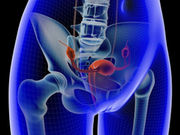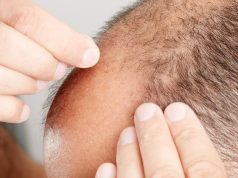Decreases incidence of moderate and severe early-onset ovarian hyperstimulation syndrome
THURSDAY, Jan. 5, 2017 (HealthDay News) — For high-risk women, letrozole is more effective than aspirin for decreasing the incidence of moderate and severe early-onset ovarian hyperstimulation syndrome, according to a study published in the January issue of the American Journal of Obstetrics & Gynecology.
Qingyun Mai, M.D., Ph.D., from the First Affiliated Hospital of Sun Yat-sen University in Guangzhou, China, and colleagues compared the efficacy of letrozole with aspirin in primary prevention of early ovarian hyperstimulation syndrome in a prospective randomized trial. Data were included for 238 participants undergoing cryopreservation of the whole embryos after oocyte retrieval with at least one high-risk factor for ovarian hyperstimulation syndrome. After human chorionic gonadotropin triggering, experimental and control groups (119 participants in each) received five days of letrozole and aspirin.
The researchers found that women receiving aspirin versus letrozole had significantly higher incidence of ovarian hyperstimulation syndrome (90.2 versus 80.4 percent, respectively). The aspirin group also had significantly higher incidence of moderate and severe ovarian hyperstimulation syndrome (45.1 versus 25.0 percent). Compared with the aspirin group, the letrozole group had a significantly shortened duration of the luteal phase (8.1 ± 1.1 days versus 10.5 ± 1.9 days). The letrozole group had a significantly higher vascular endothelial growth factor level than the aspirin group (0.49 ± 0.26 versus 0.42 ± 0.22).
“Letrozole was more effective than aspirin in decreasing the incidence of moderate and severe early-onset ovarian hyperstimulation syndrome,” the authors write.
Full Text (subscription or payment may be required)
Copyright © 2017 HealthDay. All rights reserved.








